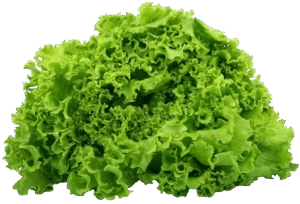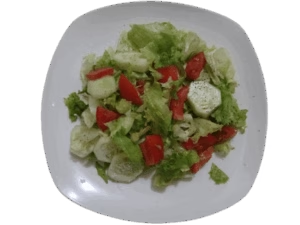TABLE OF CONTENTS
Research has highlighted several positive effects of both the supplementation and dietary intake of lutein on human health. This carotenoid is reportedly considered an important nutrient not only for the eyes but also for the overall health of the body. This is because it can provide antioxidant and anti-inflammatory support to the body. It may also reportedly be beneficial for diabetes and cardiovascular health. Let’s discuss!
You can read more on lutein and other antioxidants that are reportedly beneficial for eye health in the article below. You can also watch a video on overall eye health:
The Discussion
Lutein, like zeaxanthin, belongs to a group of plant pigments called – carotenoids. These classes of carotenoids are not able to be converted by the body to vitamin A. However, they can be found in human tissues due to digestion either from animal sources or plants (Khachik et al. 1997).
Lutein can be found in a wide variety of foods such as fruits and vegetables especially those that are yellow, orange, and dark green (Shegokar and Mitri, 2012). As such, you can find lutein in foods such as corn, pumpkin, carrots, romaine lettuce, collard greens, peas, pistachios, etc. You can also find lutein in parsley, spinach, egg yolk, kale and even foods fortified with this nutrient. Love your popcorn? Well, popcorn is reportedly high in lutein (Shegokar and Mitri, 2012).
With the gloom forecast for the development of vision impairment that can lead to blindness, especially as we age, lutein and other carotenoids will become even more researched and employed as effective preventive therapies, globally (Velez-Montoya et al. 2014).
In this post, we will explore three (3) major health benefits of consuming lutein-rich foods or supplements. These are its benefits for eye health, especially Age-related Macular Degeneration (AMD), cognitive and cardiovascular health.
Three (3) Major Health Benefits of Lutein:
- Eye Health.
- Cognitive functions.
- Cardiovascular health.
Lutein and Eye Health
Age-related blindness is a prominent concern, globally. One main cause of this type of vision impairment is age-related macular degeneration (AMD). According to research, it is reportedly the number one cause of vision impairment and blindness in many developed countries (Wong et al. 2014; Lim et al. 2012). The noted risk factor for developing this condition is the low consumption of fruits and vegetables, especially dark leafy greens (Abdel-Aal et al. 2013).
Lutein, which is found in many leafy green vegetables and fruits (e.g. yellow/orange ones), reportedly play a protective role against the development of age-related macular degeneration (AMD) to improve visual acuity (Richer et al. 2004; Dawczynski et al. 2013, etc.). It was also proven to improve macular pigmented optical density level (Richer et al. 2004; Bone and Landrum, 2012, etc.) and contrast sensitivity (Richer et al. 2004; Sasamoto, et al. 2011, etc.) all of which can lead to vision health, especially as we age.
Macular pigmented optical density is a measure of the density of the macular pigment and is used as an important measure of vision health while contrast sensitivity refers to one’s ability to see small objects very clearly or sharply. It also refers to the ability to see differences in shadings and patterns (Kaur and Gurnani,2023).
The supplementation of micronutrients including lutein was also found to help reduce one’s risk of developing advanced age-related macular degeneration (AMD) (Eye Disease Case-Control Study Group, 1993). However, some studies have not shown any significant difference in the supplementation of lutein and age-related macular degeneration (AMD). Nonetheless, most researchers contend that the results may be due to duration and dosages.
Additionally, lutein is most effective with other carotenoids, for example, zeaxanthin or beta-carotene. However, formulation with beta-carotene reportedly may increase the risk of lung cancer, especially in people who smoke (Albanes et al. 1995; Omenn, et al. 1996.). This was a major concern with the landmark Age-related Eye Disease Study (AREDs) formulation (Albanes et al. 1995; Omenn, et al. 1996). This study was an important randomized study that assessed the oral supplementation of micronutrients, which include lutein, particularly as it relates to age-related macular degeneration (AMD).
You can read more about lutein and eye health in general in this detailed article:
Lutein and Cognitive Health
Lutein reportedly accumulates in the eyes and can also be found in the brain. As such, most research concentrated on its potential effect on age-related cognitive decline. One such was a study conducted by Johnson and colleagues. In this study, the researchers purported that higher circulating lutein was associated with greater cognitive performances (Johnson et al. 2013). Other research has also confirmed this finding, especially in older adults (Feeney et al. 2017).
The researchers (Johnson and colleagues) also found that older women who supplement with lutein also experienced significant improvement in some cognitive functions, e.g. verbal fluency, memory, and learning (Johnson et al. 2008). Lutein was also purported to help with memory (Power et al. 2018), especially spatial memory and reasoning ability (Renzi-Hammond et al. 2017). It may also have the potential to protect against specific types of dementia such as Alzheimer’s disease. This is due to its purported ability to stimulate human stem cells into neural progenitors (Kuchan et al. 2013).
Nonetheless, one of the largest and most talked about studies on eye health (AREDS), did not find much association with lutein and cognitive health (Chew et al. 2015). However, more clinical studies are recommended to fully determine lutein’s cognitive benefits, especially for memory as we age.
It must be noted that neural progenitors are cells of the central nervous system that can multiply into several different cell types. However, they are reportedly not capable of generating non-neural cells of the central nervous system such as immune system cells (Merkle et al., 2004).
Lutein and Cardiovascular Health
Research has found possible protective effects of lutein on the cardiovascular system. In fact, a research by (Kim et al. 2011) found that the consumption of lutein-rich foods decreased low-density lipoprotein (LDL) cholesterol. It must be noted that this research was done with guinea pigs. Notably, the supplementation of 20 mg/day of lutein for three (3) months was positively linked to a reduction in plasma LDL-cholesterol as well as triglycerides (Xu et al. 2013).
Additionally, studies have found that lutein along with other carotenoids acts as antioxidants in vitro studies (Panasenko, et al. 2000). Research also showed that lutein countered the inducing of oxidative stress (Wang et al. 2014), which is a risk factor, though minor, for cardiovascular disease (Boushey et al. 1995; Homocysteine Studies Collaboration, 2002). Further, research contends that individuals with a high concentration of dietary lutein had lower rates of coronary heart disease (Panasenko, et al. 2000; Martin et al. 2000).
Follow-up studies by a group known as ‘Nurses Health and Health Professionals’ found that the consumption of green leafy vegetables was associated with a significant reduction in the incidences of ischemic stroke (Joshipura, et al. 1999). Nonetheless, more research is needed as it relates to the protective role of lutein on the cardiovascular system, as this is reportedly limited.
Therefore, more advanced studies are recommended, especially as they pertain to any association between low serum carotenoid levels and cardiovascular disease or inflammation (Kritchvsky, 1999). To this extent, research thus far seems positive for both the supplementation and dietary intake of lutein and the reduced risk of cardiovascular disease including heart disease and strokes.
What are the Side Effects of Lutein
In general, lutein is perceived as safe even with research based on upper limits when it comes to supplementation (Hammond et al. 2014). The upper limit of 30 and 40 mg/day was proven safe by research (Dagnelie et al. 2000). However, a significant increase in oxidative stress and the dysfunction of the mitochondrial was found in studies with mice that lacked the mitochondrial enzyme – beta-carotene oxygenase-2 (BC02) (Amengual et al. 2011).
Additionally, toxicity can occur via supplementation of high amounts. However, toxicity does not pose a risk in a balanced diet and may not require the need for supplementation, unless otherwise directed by a doctor or for someone that has inadequate absorption due to health issues etc.
Overall, many studies (epidemiology and intervention) did not observe any toxic effect in the consumption of lutein, including supplementation (Institute of Medicine, USA, 2000). Nonetheless, it would be best to consult with your doctor before taking it up as a supplement, especially if you suffer from known medical conditions or are on medication.
How can I add Lutein to my Diet?
As indicated above, lutein can be found in many fruits and vegetables, especially those that are green, yellow, and orange in colour. So, as you shop, you can explore foods such as carrots, green and yellow peppers (bell peppers), spinach, kale, lettuce, collard greens, oranges, eggs, pistachios, parsley, pumpkin, sweet potatoes, corn, etc. You can also find it in supplement form.
The best-researched concentration, as per the ones explored for this article, was 10-20 mg/day. However, when it comes to dosages and supplements, it is best to consult with your doctor, especially if you are on medication.
Illustrative Summary
Here is an illustrative summary of THREE (3) MAJOR Health Benefits of LUTEIN.
Let’s Sum Up!
The evidence is clear! The carotenoid lutein can have a positive effect on the body, especially eye health. Research has also shown that it may provide a protective effect on the cardiovascular system as well as help with memory and overall cognitive health.
This nutrient, which displays strong antioxidant properties can be found in foods such as spinach, kale, parsley, oranges among many others. Research also shows that supplementation may also provide significant benefits.
So, now that we have explored lutein and its overall health benefits, how will you work this nutrient into your diet? Or do you already have a wholesome diet that includes lutein-rich foods? Share it nuh!
You can read more on lutein and other antioxidants that are reportedly beneficial for eye health in the articles below. You can also watch a video on overall eye health:
- Abdel-Aal, E.-S.M.; Akhtar, H.; Zaheer, K.; Ali, R. Dietary sources of lutein and zeaxanthin carotenoids and their role in eye health. Nutrients 2013, 5, 1169–1185.
- Albanes, D.; Heinonen, O.P.; Huttunen, J.K.; Taylor, P.R.; Virtamo, J.; Edwards, B.K.; Haapakoski, J.; Rautalahti, M.; Hartman, A.M.; Palmgren, J. Effects of alpha-tocopherol and beta-carotene supplements on cancer incidence in the Alpha-Tocopherol Beta-Carotene Cancer Prevention Study. Am. J. Clin. Nutr. 1995,62, 1427S–1430S.
- Amengual, J.; Lobo, G.P.; Golczak, M.; Li, H.N.; Klimova, T.; Hoppel, C.L.; Wyss, A.; Palczewski, K.; von Lintig, J. A mitochondrial enzyme degrades carotenoids and protects against oxidative stress. FASEB J.2011, 25, 948–959.
- Bone, R.A.; Landrum, J.T. Dose-dependent response of serum lutein and macular pigment optical density to supplementation with lutein esters. Arch. Biochem. Biophys. 2010, 504, 50–55.
- Boushey, C.J.; Beresford, S.A.; Omenn, G.S.; Motulsky, A.G. A quantitative assessment of plasma homocysteine as a risk factor for vascular disease. Probable benefits of increasing folic acid intake. JAMA 1995, 274, 1049–1057.
- Chew, E.Y.; Clemons, T.E.; Agrón, E.; Launer, L.J.; Grodstein, F.; Bernstein, P.S.; Age-Related Eye Disease Study 2 (AREDS2) Research Group. Effect of omega-3 fatty acids, lutein/zeaxanthin, or other nutrient supplementation on cognitive function: The AREDS2 randomized clinical trial. JAMA 2015, 314, 791–801.
- Dagnelie, G.; Zorge, I.S.; McDonald, T.M. Lutein improves visual function in some patients with retinal degeneration: A pilot study via the Internet. Optometry 2000, 71, 147–164.
- Dawczynski, J.; Jentsch, S.; Schweitzer, D.; Hammer, M.; Lang, G.E.; Strobel, J. Long-term effects of lutein, zeaxanthin and omega-3-LCPUFAs supplementation on optical density of macular pigment in AMD patients: The LUTEGA study. Graefes Arch. Clin. Exp. Ophthalmol. 2013, 251, 2711–2723.
- Eye Disease Case-Control Study Group. Antioxidant status and neovascular age-related macular degeneration. Arch. Ophthalmol. 1993, 111, 104–109.
- Feeney, J.; O’Leary, N.; Moran, R.; O’Halloran, A.M.; Nolan, J.M.; Beatty, S.; Young, I.S.; Kenny, R.A. Plasma lutein and zeaxanthin are associated with better cognitive function across multiple domains in a large population-based sample of older adults: Findings from the Irish Longitudinal Study on Aging. J. Gerontol. A Biol. Sci. Med. Sci. 2017, 72, 1431–1436.
- Homocysteine Studies Collaboration. Homocysteine and risk of ischemic heart disease and stroke: A meta-analysis. JAMA 2002, 288, 2015–2022.
- Hammond, B.R.; Fletcher, L.M.; Roos, F.;Wittwer, J.; Schalch,W. A double-blind, placebo-controlled study on the effects of lutein and zeaxanthin on photo stress recovery, glare disability, and chromatic contrast. Investig. Ophthalmol. Vis. Sci. 2014, 55, 8583–8589.
- Institute of Medicine (US) Panel on Dietary Antioxidants and Related Compounds. Dietary Reference Intakes for Vitamin C, Vitamin E, Selenium, and Carotenoids; National Academies Press (US): Washington, DC, USA, 2000.
- Johnson, E.J.; McDonald, K.; Caldarella, S.M.; Chung, H.Y.; Troen, A.M.; Snodderly, D.M. Cognitive findings of an exploratory trial of docosahexaenoic acid and lutein supplementation in older women. Nutr. Neurosci. 2008, 11, 75–83.
- Johnson, E.J.; Vishwanathan, R.; Johnson, M.A.; Hausman, D.B.; Davey, A.; Scott, T.M.; Green, R.C.; Miller, L.S.; Gearing, M.; Woodard, J.; et al. Relationship between serum and brain carotenoids, _-tocopherol, and retinol concentrations and cognitive performance in the oldest old from the Georgia Centenarian Study. Aging Res. 2013, 951786.
- Joshipura, K. J., Ascherio, A., Manson, J. E., Stampfer, M. J., Rimm, E. B., Speizer, F. E., Hennekens, C. H., Spiegelman, D. & Willett, W. C. (1999) Fruit and vegetable intake in relation to risk of ischemic stroke. J. Am. Med. Assoc. 282: 1233–1239.
- Kaur K, Gurnani B. Contrast Sensitivity. [Updated 2023 Jun 11]. In: StatPearls [Internet]. Treasure Island (FL): StatPearls Publishing; 2024 Jan-. Available from: https://www.ncbi.nlm.nih.gov/books/NBK580542/
- Khachik, F., Bernstein, P. & Garland, D. L. (1997) Identification of lutein and zeaxanthin oxidation products in human and monkey retinas. Investig. Ophthamol. Vis. Sci. 38: 1802–1811.
- Kim, J.E.; Leite, J.O.; DeOgburn, R.; Smyth, J.A.; Clark, R.M.; Fernandez, M.L. A lutein-enriched diet prevents cholesterol accumulation and decreases oxidized LDL and inflammatory cytokines in the aorta of guinea pigs. J. Nutr. 2011, 141, 1458–1463.
- Kritchvsky, S. B. (1999) _-Carotene, carotenoids and the prevention of coronary heart disease. J. Nutr. 129: 5.
- Kuchan, M.;Wang, F.; Geng, Y.; Feng, B.; Lai, C. Lutein stimulates the differentiation of human stem cells to neural progenitor cells in vitro. In Advances and Controversies in Clinical Nutrition; Abstract No. 23; ILSI North America: Washington, DC, USA, 2013.
- Lim, L.S.; Mitchell, P.; Seddon, J.M.; Holz, F.G.;Wong, T.Y. Age-related macular degeneration. Lancet 2012, 379, 1728–1738.
- Martin, K. R., Wu, D. & Meydani, M. (2000) The effect of carotenoids on the expression of cell surface adhesion molecules and binding of monocytes to human aortic endothelial cells. Atherosclerrosis 150: 265–274.
- Merkle F. T., Tramontin A. D., García-Verdugo J. M., Alvarez-Buylla A. (2004). Radial glia give rise to adult neural stem cells in the subventricular zone. Proc. Natl. Acad. Sci. U S A 101, 17528–17532. 10.1073/pnas.0407893101
- Omenn, G.S.; Goodman, G.E.; Thornquist, M.D.; Balmes, J.; Cullen, M.R.; Glass, A.; Keogh, J.P.; Meyskens, F.L., Jr.; Valanis, B.;Williams, J.H., Jr.; et al. Risk factors for lung cancer and for intervention effects in CARET, the Beta-Carotene and Retinol Efficacy Trial. J. Natl. Cancer Inst. 1996, 88, 1550–1559.
- Panasenko, O. M., Sharov, V. S., Briviba, K. & Sies, H. (2000) Interaction of peroxynitrite with carotenoids in human low density lipoproteins. Arch. Biochem. Biophys. 373: 302–305.
- Power, R.; Coen, R.F.; Beatty, S.; Mulcahy, R.; Moran, R.; Stack, J.; Howard, A.N.; Nolan, J.M. Supplemental retinal carotenoids enhance memory in healthy individuals with low levels of macular pigment in a randomized, double-blind, placebo-controlled clinical trial. J. Alzheimer’s Dis 2018, 61, 947–961.
- Renzi-Hammond, L.M.; Bovier, E.R.; Fletcher, L.M.; Miller, L.S.; Mewborn, C.M.; Lindbergh, C.A.; Baxter, J.H.; Hammond, B.R. Effects of a lutein and zeaxanthin intervention on cognitive function: A randomized, double-masked, placebo-controlled trial of younger healthy adults. Nutrients 2017, 9, 1246.
- Richer, S.; Stiles, W.; Statkute, L.; Pulido, J.; Frankowski, J.; Rudy, D.; Pei, K.; Tsipursky, M.; Nyland, J.Double-masked, placebo-controlled, randomized trial of lutein and antioxidant supplementation in the intervention of atrophic age-related macular degeneration: The Veterans LAST study (Lutein Antioxidant Supplementation Trial). Optometry 2004, 75, 216–230.
- Sasamoto, Y.; Gomi, F.; Sawa, M.; Tsujikawa, M.; Nishida, K. Effect of 1-year lutein supplementation on macular pigment optical density and visual function. Graefes Arch. Clin. Exp. Ophthalmol. 2011, 249, 1847–1854.
- Shegokar R, Mitri K. Carotenoid lutein: a promising candidate for pharmaceutical and nutraceutical applications. J Diet Suppl. 2012;9:183-210.
- Velez-Montoya, R.; Oliver, S.C.; Olson, J.L.; Fine, S.L.; Quiroz-Mercado, H.; Mandava, N. Current knowledge and trends in age-related macular degeneration: Genetics, epidemiology, and prevention. Retina 2014, 34, 423–441.
- Wang, S.;Wang, M.; Zhang, S.; Zhao, L. Oxidative stress in rats with hyperhomo-cysteinemia and intervention effect of lutein. Eur. Rev. Med. Pharmacol. Sci. 2014, 18, 359–364.
- Wong, W.L.; Su, X.; Li, X.; Cheung, C.M.; Klein, R.; Cheng, C.Y.; Wong, T.Y. Global prevalence of age-related macular degeneration and disease burden projection for 2020 and 2040: A systematic review and meta-analysis. Lancet Glob. Health 2014, 2, e106–e116.
- Xu, X.R.; Zou, Z.Y.; Xiao, X.; Huang, Y.M.; Wang, X.; Lin, X.M. Effects of lutein supplement on serum inflammatory cytokines, ApoE and lipid profiles in early atherosclerosis population. J. Atheroscler. Thromb. 2013, 20, 170 -177.





